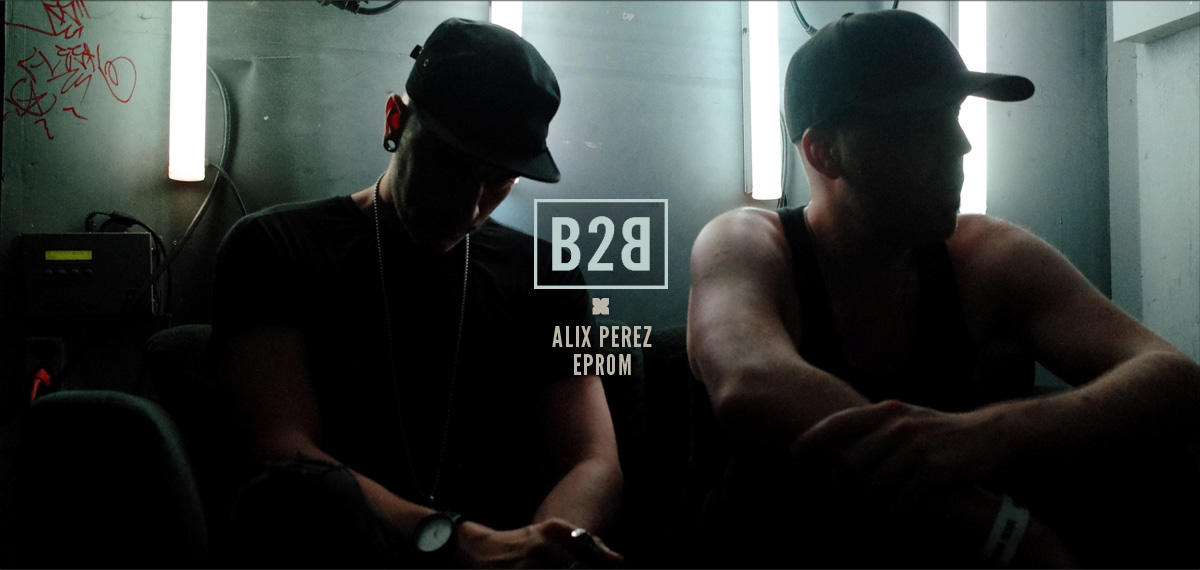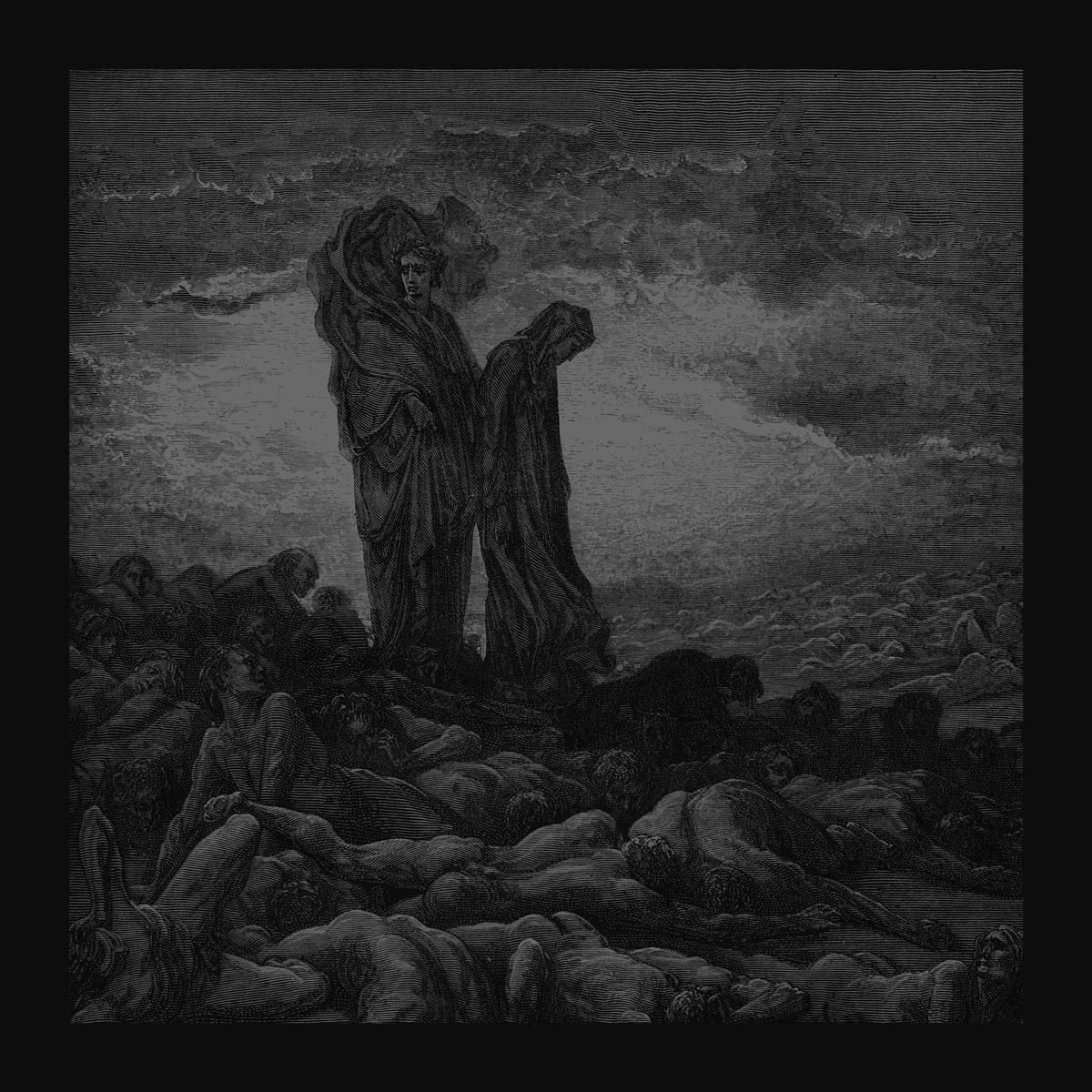B2B: Alix Perez & Eprom
New EP in hand, the producers head to next week's Low End Festival.

B2B: Alix Perez & Eprom
New EP in hand, the producers head to next week's Low End Festival.

A lot has happened since 2009. Dubstep, for instance, jumped into the mainstream pool with both feet—only to be ushered out rather quickly by the tidal wave of 4/4 EDM. Concurrently, Low End Theory and Alpha Pup Records went from one of L.A.’s best kept secrets to full-blown, experimental, intelligent and sometimes jazzy prominence, courtesy of Flying Lotus, Thundercat, Kamasi Washington and the entire stable of artists that label boss and Low End founder Daddy Kev has nurtured for well over a decade.
Even so, it’s hard these days to come by music that’s not only a legitimate full-frontal assault in the same vein as tunes from that golden era of gluttonous bass and synths, but that embraces that ethos while giving it a more polished feel. However,when West Coast mid-tempo bass meets half-step U.K. jungle/drum & bass, somewhere around 85 bpm—with a generous helping of hip-hop tossed into the mix—that’s exactly what you get. Specifically, that’s what you get with Shades, the new EP from Alexander “Eprom” Dennis and Alix Perez, slated for release on Alpha Pup on July 31st.

The release’s music is heavy, without being serious; playful, without meandering. It’s tightly crafted bass music for 2015’s sentimentality, put together by two guys who are clearly having fun making music with each other—and it’s a surprisingly fertile middle ground between each artist’s roots. We caught up with the pair for a quick chat about the EP, their recording process and what they hope to bring to their performance together at the Low End Theory Festival, coming up on August 8.
Shade’s tracks feel like a throwback to the Glitch Mob when they had Kraddy, or some of the Megasoid and Lazer Sword stuff from around 2009. Is that something you guys were going for?
Eprom: I come from that world. Alix comes from a different world but for me, I went to college with the Glitch Mob dude Justin, and we did some projects together—so there’s definitely some crossover and influence from those guys. Megasoid were a big influence on me early on, people doing that sort of hard beat music at hip hop tempo with super heavy basslines and weird drum sound design. To me, those guys were definitely an early influence. We share some aspects of the sound, but I think Alix definitely arrived at that sound through different avenues.
Perez: I come primarily from more jungle and drum & bass, but I’ve kind been following the whole Low End Theory and L.A. beat scene for quite a few years now. A lot of my original influences in music are from hip-hop, and I got drawn to that scene because it’s the merging of electronic music with more classic hip-hop things; that’s what really caught my ear. You mentioned Lazer Sword, which is someone that I followed quite a lot back then—and obviously, like I said, all the Low End things.
I became aware of Sander’s music quite early on as well. It’s always been something I’ve been drawn to, and there’s been a natural shift in my solo stuff which we call half-time, which is halving the tempo of drum & bass—so around 85 bpm which naturally stands within the kind of tempo that the whole beat scene was working around. Maybe a bit higher, maybe a bit lower. And that’s a natural thing for me and with Sander, I feel we’re both aware of each others’ music and we met actually in person at a festival in New Zealand a couple years ago and we got on and chatted and talked about making music. I feel the whole thing’s kind of natural, it’s not forced, we’re not trying to make it a certain sound, we’re just having fun blending what we both do together.
Both of you came up within fairly strict genres, whether it’s the mid-tempo West Coast camping-party scene or U.K. drum & bass. Is the fact that the Low End scene doesn’t have the same type of strict boundaries or genre expectations part of the appeal of releasing on Alpha Pup for both of you?
Eprom: Definitely. To me, Low End Theory in particular has always been this sort of proving ground for tracks and it’s kind of like…I make a lot of tunes for the DJs at Low End Theory to play, and for myself to play when I go there. And you can make these crazy, experimental DJ-tool banger tracks and people eat them up. It’s cool to have that petri-dish, testbed thing of Low End Theory, so we’re really looking forward to playing at the festival.
“That’s what I like having: creative freedom and being able to do whatever I want.”
Perez: For me, same thing. I got to play Low End Theory for the first time last year, and it was one for the books for me. I was mad nervous. It was interesting to see, because Daddy Kev has always represented jungle and that side of things and other interesting things going on, from footwork to the half-time thing and the kind of rave element of things, with Mentasm coming back in. Like you said, there’s no kind of barrier—it’s really open. And that’s what I like having: creative freedom and being able to do whatever I want. Kind of keeping it within a sort of comprehensive sound, I guess,—but having no barriers is definitely a bonus for me.
Tell me about your process and what kind of equipment you’re using to squeeze such massive sound into these tunes, and how these tracks ultimately came together in the studio.
Eprom: Well I use Ableton Live, and Alix mainly uses Logic, but we’ve started shifting things toward mostly using Ableton Live. But he does a lot of sound design in Logic ,and I do sound design in Ableton or analog synths. I think the first couple tracks, what did we do? I think we just loaded up some drums & bass sounds, and just went from there.
Perez: Yeah, the “Minotaur” track was basically you jamming with the drums on Ableton and me jamming with the Virus live, I think. We recorded a session of maybe 15 minutes of jamming on different bass patches, distorting them, filtering them, not MIDI or anything, just really loose—and sort of chopping things up and putting them together, and developing from there. It was really just like fun.
Eprom: That’s the way I like to work a lot. Just set up a little loop and play it through some analog synths and mess with different settings. Chop them up. We did that in the Red Bull Studio, too. We took a drum loop and ran it through a Lexicon delay unit, where you can modulate the delay times so that’s how we did that crazy, flangey drum breakdown in “Minotaur.” I’m too ADD to sit there and just dial in every little sound, so it’s more fun to set something up where we can jam and pick the best bits after that. Just keep it kinda loose and flowing.
There’s a lot more freedom today with all of the different performance tools and with how hardware interacts so seamlessly with software.
Perez: We’re both quite big fans of analog as well and I’ve got quite a few synths myself—Moog, Virus, JP8000 and a few more – and I think that’s maybe something that’s a little bit different about our sound. I’m still stuck with the analog-think, even though I do have soft synths and like using them sometimes. Rut just doing something really raw is the basis behind it for me.
“Low End Theory is probably my favorite place to play in the whole world because the crowd is so up.”
You two are performing together at the Low End Theory festival. What does that mean to you, and what do you plan on bringing to your performance there?
Eprom: Low End Theory is probably my favorite place to play in the whole world because the crowd is so up for it and they’re so into what I’m doing—they know me and it’s just a really great feedback loop. For this festival, we’re basically building the set from scratch; we’re still working on it, but it’s going to be two Ableton laptops and possibly some other gear. We’re really looking forward to it.
Perez: Ableton kind of syncs things so we’re playing against each other with our own music and we’re working on new stuff, too, that we’re going to bring into the set and really push exactly how we represent our collaboration and how to embody the whole sound. We’ll incorporate a few tracks from other people here and there but it’s mainly about pushing and defining what we’re doing. And like said, we’re really looking forward to it. I already said how nervous I was last year before playing Low End for the first time, as nervous as I’ve been in a long time. I’ve played big crowds before but it wasn’t the crowd, it was about Low End Theory itself, a staple night and something that’s really important. I feel quite comfortable that people are going to understand where we’re coming from with this project and that it’s something they’ll be able to relate to. I’m really looking forward to seeing how it goes down.
Catch Alix Perez & Eprom Present Shadesat the following:
7/31 Fusion Factory, Denver
8/8 Low End Theory Festival, L.A.
8/12 La Belmont, Montreal
8/13 U Street Music Hall, Washington, DC
8/15 Aisle 5, Atlanta

